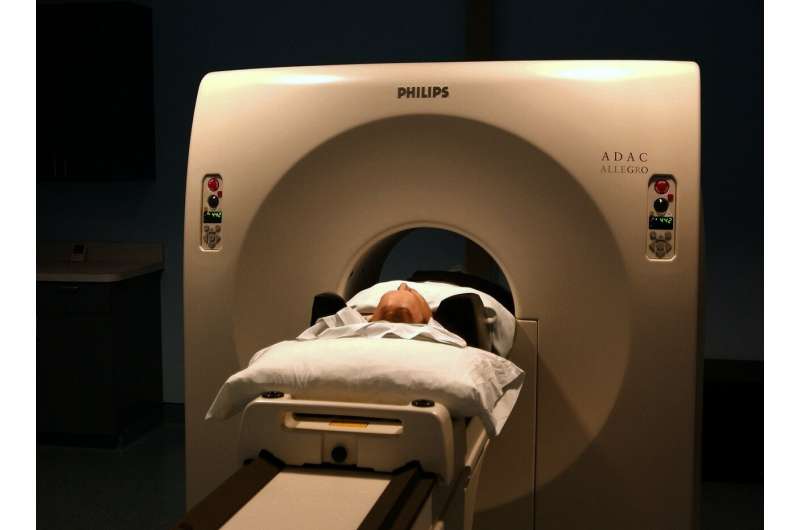October 7, 2019 report
Partnership plans to produce Mo-99 to fill global demand for medical applications

SHINE Medical Technologies and partner Phoenix LLC have developed a new way to produce molybdenum-99 (Mo-99) for use in medical applications. They claim that testing has shown their new technology breaks the world record for the strongest nuclear fusion reactor in a steady-state system.
Mo-99 is a radioactive isotope that is useful in the medicine because it decays into technetium 99m, which is used in medical imaging systems, particularly those used for cardiac stress testing. But it is problematic because it is derived from uranium, which, of course, is also used to make nuclear weapons. It also requires a fusion reaction. Such problems have resulted in chronic shortages of Mo-99. In this new effort, the researchers claim to have developed a more efficient way to make the material that does not involve the use of weapons-grade uranium.
The new system works by speeding up deuterium ions and running them into tritium gas, resulting in a fusion reaction. The reaction produces helium and high-energy neutrons. The neutrons make their way to a tank where they strike low-enriched uranium that has been dissolved in a liquid solution. The nuclei split, resulting in the production of Mo-99 and other isotopes.
Officials with the partnership note that the new process does not require a reactor facility—and the use of low-enriched uranium makes the production process more secure. Testing has shown the new technology to be both more efficient than current methods and more reliable—it was found to operate 99 percent of the time it was being tested. The success has led the team to begin construction of a new facility for generation of Mo-99. They expect production to begin in 2021. The new facility will house eight Mo-99 systems, each with its own generator. Company officials claim that at full production, the facility will be capable of producing one-third of global demand for Mo-99. The facility could also represent a stepping stone toward the development of more advanced fusion applications such as nuclear waste recycling.
More information: shinemed.com/world-record/
© 2019 Science X Network



















